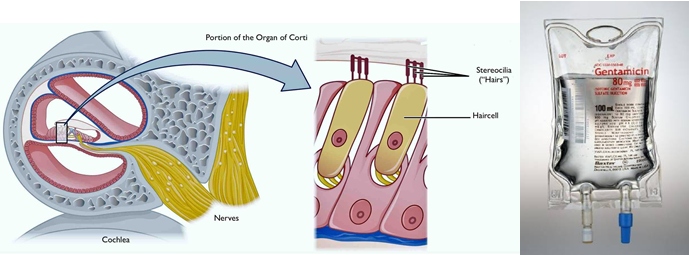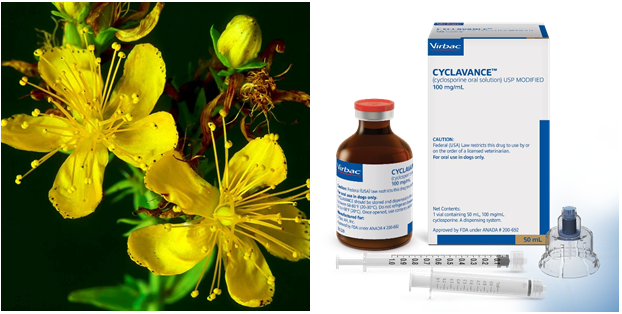A male client has been receiving the antibiotic gentamicin sulfate IV piggyback every 12 hours for several days. Which observations by the nurse indicate that the client may be experiencing an adverse effect of gentamicin?
Hearing has decreased.
Decreased blood urea nitrogen.
White blood cells count 6,000/mm3 (6x109/L).
Reports of photophobia.
The Correct Answer is A
Gentamicin sulfate is an aminoglycoside antibiotic that can cause ototoxicity, which is damage to the inner ear leading to hearing loss or balance problems. Therefore, a decrease in hearing is an indication that the client may be experiencing an adverse effect of gentamicin.
Option b, decreased blood urea nitrogen, is not an adverse effect of gentamicin, but it may indicate improvement in kidney function, which can be a positive outcome of treatment.
Option c, a white blood cell count of 6,000/mm3 (6x109/L), is within the normal range and is not necessarily an adverse effect of gentamicin.
Option d, photophobia, is not a common adverse effect of gentamicin and may indicate a different condition or medication effect.

Nursing Test Bank
Naxlex Comprehensive Predictor Exams
Related Questions
Correct Answer is D
Explanation
Anaphylaxis is a severe and potentially life-threatening allergic reaction that occurs rapidly after exposure to an allergen. The symptoms of anaphylaxis can vary but usually involve multiple organ systems, including the skin, respiratory, cardiovascular, and gastrointestinal systems.
Wheezing and dyspnea are two common symptoms of anaphylaxis that indicate the respiratory system's involvement.
Urticaria and pruritis are skin manifestations that can also be present in anaphylaxis, but they are not specific to this condition.
Insomnia and irritability are not typical symptoms of anaphylaxis.
Tinnitus and diplopia are also not common symptoms of anaphylaxis.

Correct Answer is B
Explanation
Cyclosporine is an immunosuppressive medication commonly used to prevent graft rejection after organ transplantation. St. John's Wort is known to induce cytochrome P450 enzymes, which can increase the metabolism and decrease the effectiveness of many medications, including cyclosporine. This interaction can lead to decreased plasma concentrations of cyclosporine, which can increase the risk of graft rejection. Therefore, it is important to advise the client to discontinue the use of St. John's Wort and inform their healthcare provider about any herbal or supplement use to prevent potential interactions with prescribed medications. Options a, c, and d are not directly related to the client's current condition and are not as significant as option b.

Whether you are a student looking to ace your exams or a practicing nurse seeking to enhance your expertise , our nursing education contents will empower you with the confidence and competence to make a difference in the lives of patients and become a respected leader in the healthcare field.
Visit Naxlex, invest in your future and unlock endless possibilities with our unparalleled nursing education contents today
Report Wrong Answer on the Current Question
Do you disagree with the answer? If yes, what is your expected answer? Explain.
Kindly be descriptive with the issue you are facing.
